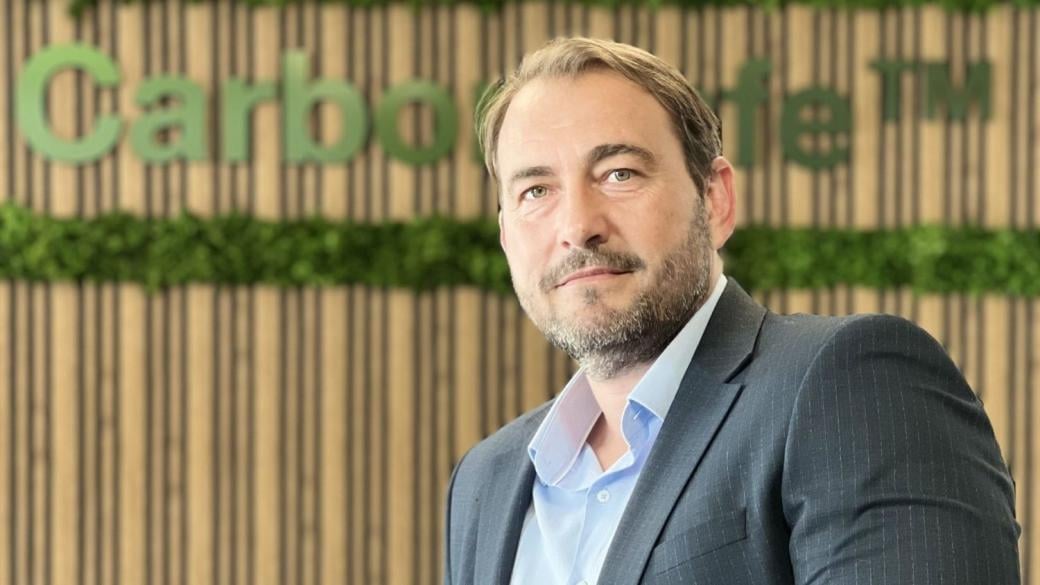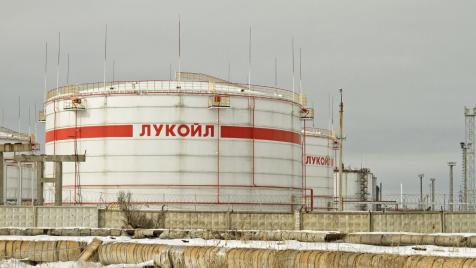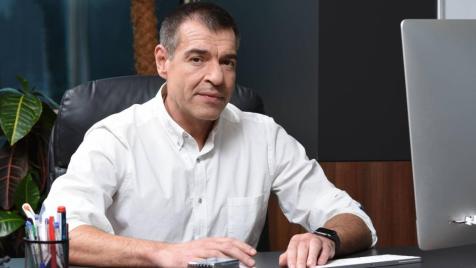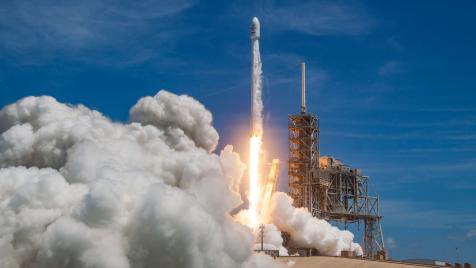Interview | Bulgaria could be a good example of innovative carbon farming
The carbon credit market in Bulgaria is in its early stages but is developing very dynamically, says the director of Carbonsafe
Chavdar Marinov, CEO of Carbonsafe:

Chavdar Marinov is CEO of Carbonsafe, the first company in Europe to certify carbon dioxide removal and deliver carbon credits from organic soil carbon.
He has years of experience in leadership and environmental projects focused on carbon sequestration in agricultural soils. We spoke with him about the company's strategic vision, innovations and impactful solutions for a greener future, as well as the benefits of implementing sustainable solutions and the price of carbon credits.
Mr. Marinov, Carbonsafe is already establishing itself as a leading company in the carbon credit market in Bulgaria. What were the initial challenges and how did you overcome them?
In the beginning, the biggest challenge we faced was the lack of trust and understanding about carbon farming and its potential. The market in Bulgaria was new, practically non-existent, and the topic was too "global" and abstract for most farmers and businesses. There was no national framework in place, no local registry, no validated methodologies, and no clear understanding of what a high-quality carbon credit is.
So we started from scratch—we developed our own scientifically sound methodology based on real measurements, had it validated by an independent party, and built a comprehensive system covering everything from sampling and laboratory analysis to certification and credit registration. We have earned the trust of farmers by showing them that this is not just another bureaucratic model, but an opportunity for additional income based on good agronomic practices. We have gradually overcome the initial skepticism and today we work with over 70 farms and more than 400,000 acres of land.
What were the key moments or turning points in Carbonsafe™'s history that played a decisive role in its transformation into a leading company in the carbon credit sector in Bulgaria?
There were several milestones. The first was the acceptance and validation of our methodology by an independent auditor—this was the first Bulgarian soil sequestration methodology accepted under international standards. This put Carbonsafe™ on the map as a technology innovator, not just a credit trader.
The second important milestone was the registration of the first credits in the Balkan Carbon Credit Registry (BCCR) – a fully transparent and traceable process that guarantees the uniqueness and quality of each credit. This is where we gained the trust of our first corporate buyers – companies that value real environmental benefits, not just an external ESG image.
The third key moment was the first successful sale of credits generated by Bulgarian farmers – this proved that the model works not only in theory but also in practice, and that farmers can get a real return on their sustainable efforts.
Carbonsafe is the first and only program of its kind in Europe with a certified public audit report and issued soil sequestration credits. How did this affect the company's development and what advantages did it give it in the market?
This fact has not only increased trust in us, but also given us a strategic advantage in the European market. At a time when carbon markets in Europe are facing criticism regarding the quality and traceability of credits, we have presented a solution that is scientific, transparent, and practical.
The certified public audit report proves that every credit generated is the result of actual measured carbon in the soil, not statistical modeling. This positions us not just as a project developer, but as an innovator and leader in the application of technologies for nature-based emissions removal. For buyers, this means certainty and quality; for farmers, it means a sustainable source of income.
Carbonsafe works directly with farmers. What are the main challenges and opportunities in engaging farmers in carbon farming?
The main challenge is the information barrier – many farmers still don't fully understand what carbon farming is, how carbon is measured in the soil, what the benefits are for them, and what it will cost them to participate. In this context, our role is not only technical but also educational – we provide training, individual consultations, and explain each step of the process.
On the other hand, the opportunities are enormous – farmers have the potential to be some of the most effective allies in the fight against climate change, as soils can be sustainable carbon sinks. Our model does not require them to stop production or drastically change their practices – just to make them more sustainable, more profitable, and more environmentally friendly. This creates a new economic model in which farmers not only produce food but also ecosystem services.
Transparency and traceability are key principles for Carbonsafe, as evidenced by our registration with the Balkan Carbon Credits Registry (BCCR). How does this transparency affect trust in the carbon credit market in Bulgaria?
Transparency and traceability are at the heart of a sustainable carbon market. That is why registering our projects and credits with the Balkan Carbon Credits Registry (BCCR) is not just a formality – it is a conscious choice that ensures that every carbon credit we sell can be traced back to a specific field and a specific farmer.
This eliminates one of the most serious risks in the sector – double counting and lack of real impact. When a credit has a unique serial number registered in a public registry and is backed by laboratory data and an audit report, market confidence increases. This is a prerequisite for building a stable ecosystem of farmers, designers, buyers, and regulators – all united by a common goal and clear rules.
The European Commission's CRCF framework sets strict criteria. How is Carbonsafe adapting to these requirements, and how does this position the company in the European market?
Even before the CRCF was officially published, we had already started working on implementing the principles set out in the framework – reality, additionality, permanence, and verification. Our method, which uses real soil measurements and does not rely on modeling, is fully compliant with the new EU requirements.
This gives us a strong advantage – Carbonsafe™ is ready for integration into the future European registry and participation in the EU's single carbon market. We are positioning ourselves as a provider of high-quality removal credits – i.e., credits from actual CO₂ removed, which will be most sought after in the new framework. Our processes are already compliant with upcoming regulations, making us a desirable partner outside Bulgaria as well.
How do you assess the current state of the carbon credit market in Bulgaria? What are the main trends you are observing?
The market is in its early stages of development, but it is extremely dynamic. We already have a foundation in place – a functioning registry, first projects, certified credits, and real transactions. What lies ahead is the mass inclusion of farmers and industrial consumers.
We are seeing a clear trend towards demand for high-quality and traceable credits, especially from companies subject to international ESG audits. Bulgaria has the potential to become a leader in the region if it manages to combine technology, transparency, and agricultural capacity. However, it is important that this process is supported by a clear national strategy and regulatory framework.
How do you see Carbonsafe's role in the context of the green transformation of Bulgarian agriculture?
Carbonsafe™ is not just a supplier of carbon credits – we are a partner to farmers in their transition to sustainable agriculture. We help them switch to practices that not only capture carbon but also improve yields, soil health, and resilience to climate change.
In this sense, our role is systemic – we are transforming the way people think about the value of agriculture. It is no longer just about kilograms of grain or vegetables. Land can be an asset for the climate – and we provide the tools to make this possible and profitable.
What are Carbonsafe's main plans and goals for the short and long term? In what directions do you plan to expand your activities?
In the short term, we want to expand the participation of farmers and territories, including in new regions of Bulgaria and Southeast Europe. We are also working on expanding our portfolio.
In the long term, our goal is for Carbonsafe™ to be the leading European platform for soil and nature-based carbon sequestration, with transparent processes, international partners, and recognition within the EU's single carbon market. We are also planning to digitize our services, including through the implementation of satellite monitoring and blockchain traceability of credits.
Do you foresee any new technological developments or innovations that will contribute to the further development of the carbon credit market and Carbonsafe's position in it?
Yes, technology will be at the heart of our next phase of growth. We are currently working on a blockchain-based digital traceability system for each carbon unit, which will provide even greater transparency for buyers.
Our innovations are not just technological – we are also creating new business models that allow farmers to participate collectively in projects, share resources, and enjoy better returns. Our goal is to make carbon farming widely applicable and economically viable.
How do you see carbon farming developing in Europe in the coming years? What are the main drivers and potential barriers?
Carbon farming will become a key pillar of the European climate strategy. The Green Deal, the new Common Agricultural Policy, and the CRCF framework clearly show that agriculture will no longer be seen only as a source of emissions, but also as part of the solution.
The driving forces will be regulations, business demand, and the need to adapt to climate change. However, bureaucracy and a lack of technical capacity at the local level, especially in Eastern Europe, remain potential barriers. This is where we see our role – to ensure that farmers not only enter the system but also derive real benefits from it.
What is Carbonsafe's vision for the future of the carbon credit market and how does the company plan to remain competitive in this dynamic market?
Our vision is clear – the carbon credit market will move from a phase of trust to a phase of proof. Only credits with real value, measurable results, and a transparent history will have a place in the future economy.
Carbonsafe™ will remain competitive because it creates value from the bottom up – we start with the farmer, the soil, the land, and end up with the corporate buyer. We use real data, external verification, and public reporting. We don't sell promises – we deliver proven climate benefits. And that is our strongest asset.
How do you think Bulgarian experience and innovation in carbon farming, such as that of Carbonsafe, can contribute to the development of this sector in Europe?
Bulgaria can be an innovative example for the region and the EU because carbon farming is not developing as a bureaucratic project here, but as a market-oriented and scientifically sound solution. Carbonsafe™'s experience shows that with the right expertise, methodology, and partnerships, even a small country can create a model with European significance.
We believe that Bulgaria's contribution will be to democratize access to the carbon credit market, prove the effectiveness of real measurements, and build sustainable agroecosystems. In this sense, the innovations we are implementing can be scaled up and adapted in other EU countries seeking reliable and applicable solutions for their climate goals.
This article was prepared with the assistance of Carbonsafe.
Translated with DeepL.

 Mirela Vavova
Mirela Vavova 


